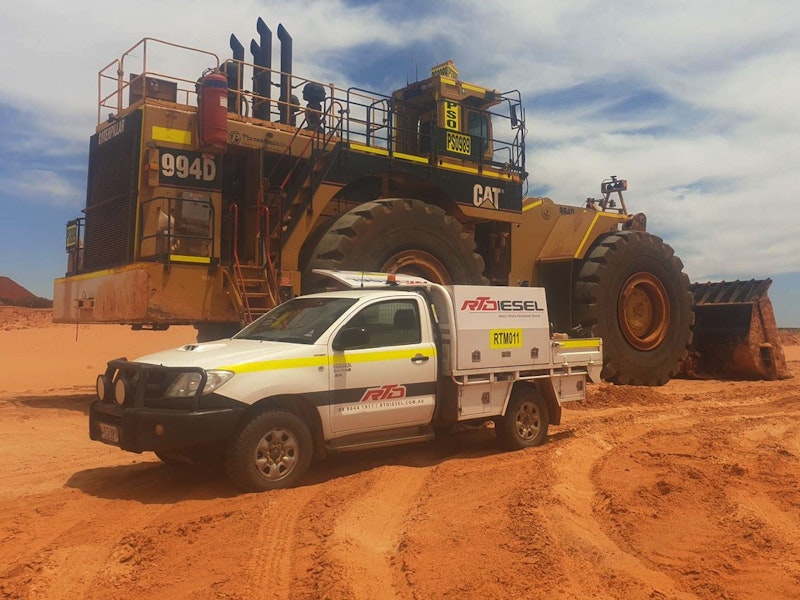
Payroll Tax Reform
The South Australian Business Chamber has asked the State Government to reform payroll tax in the 2024 – 2025 state budget.
Payroll tax is a tax on employment and an impediment to growth. Our surveys repeatedly demonstrate it is the most constraining state-based tax, and high wage growth in recent years has created a bracket creep scenario that has seen many businesses paying this tax for the first time.
The abolition of payroll tax by any government is highly unlikely, however, we believe there are opportunities for reform that will not only make South Australia more economically competitive but support our state as we take on the ambitious defence, energy and infrastructure projects that lay ahead.
What is Payroll Tax?
Payroll tax is a state tax that is calculated on wages paid or payable. Payroll tax is payable when an employer’s (or group of employers’) total Australia wide taxable wages exceeds the South Australian threshold. An employer’s Australia wide taxable wages comprise its South Australian wages and all interstate wages. In South Australia, payroll tax is collected and administered in accordance with the Payroll Tax Act 2009.
Current rates of payroll tax
Annual payroll does not exceed $1.5 million — Nil
Annual payroll exceeds $1.5 million but not $1.7 million — variable from 0% to 4.95%
Annual payroll exceeds $1.7 million — 4.95%
We have asked the State Government to consider the following initiatives
Lift the payroll tax threshold
The payroll tax threshold was most recently adjusted in 2019, at a time of low inflation, and low wage growth and before COVID-19. Since then, South Australian businesses have been subjected to award wage increases of 2.5% in 2021, of 4.6% in 2022 and 5.75% in 2023 (the highest in history), along with the highest inflation in generations, and the pandemic-induced economic fallout. As a result, many businesses are now subject to payroll tax for the first time.
In our June 2023 Survey of Business Expectations, we found that 38.9% of respondents paid payroll tax in 2020/21 climbing to 46.4% in 2022/23. At the time, 45.7% expected to be liable for 2023/24, with a further 9.2% unsure of what their obligations might be for this year.
We therefore advocate for the payroll tax threshold to be lifted to reflect the increase in wages. At a time of fiscal health for the State Government, increasing the payroll tax threshold would encourage growth and employment, and provide a reprieve for those businesses on the cusp of a significant additional cost.
We recommend the government increase the threshold from $1.5 million to $2.1 million. This would give South Australia the most competitive threshold in the country and cement South Australia as a great place to do business.
Introduce a 50% payroll tax discount for regional South Australia
Victorian regional businesses are subject to a payroll tax rate of just 1.2125% - a fraction of the South Australian rate. We want an environment that encourages businesses to set up, grow and stay in the regions rather than be lured cross the border to avoid a comparatively exorbitant tax.
To generate increased business investment, we call for a 50% payroll tax reduction for regional South Australia.
Eligibility for Victoria and Queensland’s regional payroll tax schemes require the principal address of the business to be located in a regional area and that at least 85% of staff live and work in a regional area. We feel this is a reasonable criterion that can be replicated for regional South Australia and would be happy to work with the government to find a suitable approach.
Introduce an exemption on wages paid to apprentices, trainees, new graduates
The South Australian Government has many ambitious infrastructure goals, including Hydrogen Power Plant, Northern Water, AUKUS, the Women’s and Children’s Hospital and completing the North South Corridor. At the same time, increasing the state’s housing stock is crucial to accommodate the workforce required to deliver these projects.
South Australia is in the midst of a prolonged and costly skills shortage, and it is particularly dire in trades. Data from Jobs and Skills Australia shows that 36% of all occupations are in shortage nationally, including all occupations in the category of Construction Trades Workers.
Providing incentives for businesses to bring on new apprentices and trainees in areas of distinct need for South Australia would help solve this problem.
Businesses tell us that they are experiencing increasing cost pressures in every part of their operations at unprecedented levels. Faced with the likelihood of paying payroll tax for the first time, they may be forced to downsize their workforce and abandon growth plans that will require an increased headcount. This is when inexperienced workers are most vulnerable, as existing jobs are put at risk, and the pipeline of opportunities that we need to build and grow our workforce is stalled. Lack of job security in South Australia has historically sent workers interstate and this is not a scenario we can afford if we are to deliver on our state’s major projects The absence of both a skilled and unskilled workforce is one of the biggest risks the government faces.
The government can incentivise businesses to bring on apprentices, trainees, graduates (local and international) by exempting these jobs from payroll tax calculations. This would have broad support from the business community and the public and lead to real change. Businesses eager to grow would be encouraged to do so without the threat of payroll tax decimating profits and young people would have career pathways in the sectors where they are most needed, keeping them here in our state and servicing our major projects.
Boost employment through targeted payroll tax discounts
As with the apprentice, trainee and graduates example, employment growth in specific sectors could be encouraged by offering aligned payroll tax deductions. This would support the state’s future plans and increase our economic complexity and sovereign capability.
The state’s participation rates could also be addressed using this model.
South Australia’s unemployment rate (4%) currently sits lower than nearly all other jurisdictions. Conversely, our underemployment rate (7.7%) is the highest in the country and our participation rate (63.4%) is second lowest after Tasmania. Access to a new workforce is needed by those businesses desperate for staff.
The Chamber recommends the government waive payroll tax on wages for businesses hiring under-represented workers, long-term unemployed individuals, post-correctional individuals, and those undergoing re-skilling to enhance workforce accessibility. This measure could unlock a vital workforce segment and stimulate economic participation.
Widen the range at which payroll tax is scaled from 0% to 4.95%
The structure of the payroll tax scale hits growing businesses hard and quickly. Businesses in expansion mode find themselves faced with significant tax obligations that seem to have come out of nowhere.
To encourage growing businesses to hire new staff, increase wages and expand their operations, the scale at which payroll tax is introduced needs to be reformed to soften the impact. While businesses would rather pay no tax at all, this approach is more supportive than the status quo.
We are willing to work with the government to determine the range that is used for scaling payroll tax to strike a balance between state revenue and business affordability.
Relax grouping restrictions for small businesses in their first 12 months
The grouping of businesses for payroll tax is proving a real challenge where not all businesses are performing equally or at the same stage of growth. We hear this from entrepreneurs and business operators who take on new businesses, often saving a distressed asset that would otherwise be closing, impacting its workforce and local community. We recommend the State Government investigate relaxing grouping restrictions as they apply to new businesses.
For example, a newly started or purchased small business could be exempt from payroll tax grouping restrictions for its first 12 months of operation. During this initial period it is not uncommon for a business to be running at a loss. It hardly seems fair (or logical) to force a payroll tax obligation on the part of a business group that is not even turning a profit, yet is creating jobs and contributing to the economic complexity of the state. We need to encourage our entrepreneurs – they are telling us that grouping is a significant disincentive. When buying a failed business and saving jobs puts your total workforce above the payroll tax threshold, there is little reward for your endeavours.
Policy and Advocacy Lead

Kendall Crowe
General Manager, Policy, Advocacy and International Services

Contact our Policy and Advocacy team
Submit the enquiry form and one of our staff will get in touch with you.





